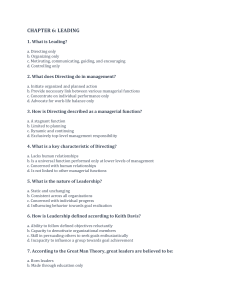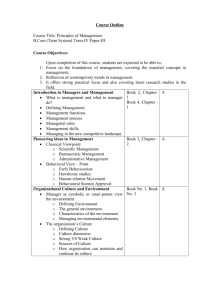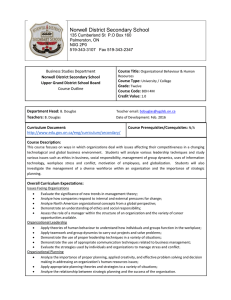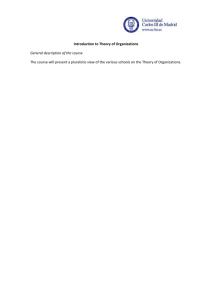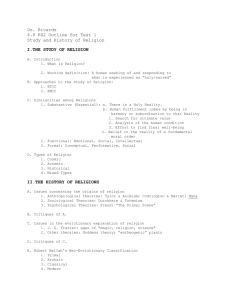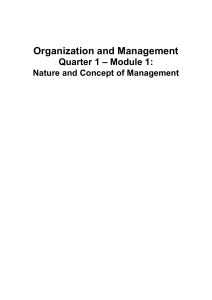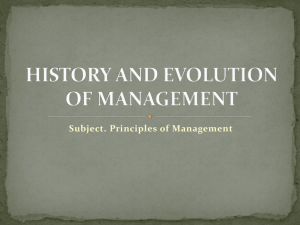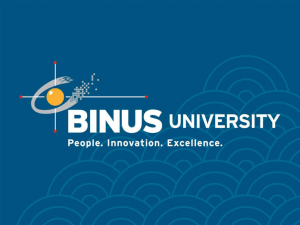MEP 7101.doc
advertisement
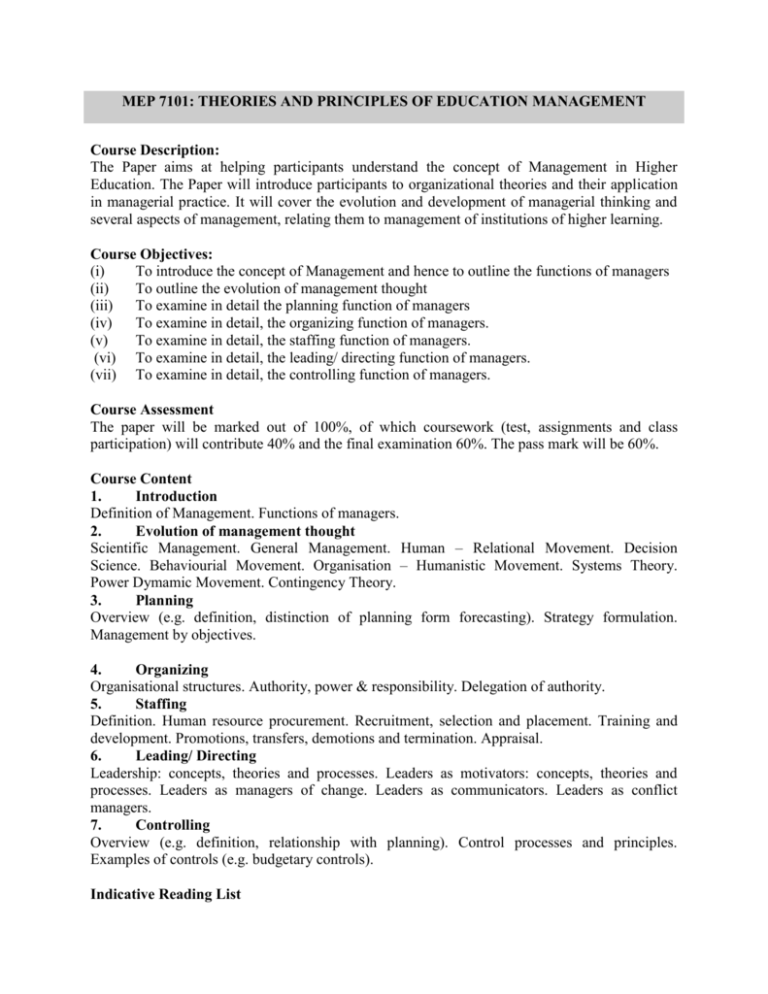
MEP 7101: THEORIES AND PRINCIPLES OF EDUCATION MANAGEMENT Course Description: The Paper aims at helping participants understand the concept of Management in Higher Education. The Paper will introduce participants to organizational theories and their application in managerial practice. It will cover the evolution and development of managerial thinking and several aspects of management, relating them to management of institutions of higher learning. Course Objectives: (i) To introduce the concept of Management and hence to outline the functions of managers (ii) To outline the evolution of management thought (iii) To examine in detail the planning function of managers (iv) To examine in detail, the organizing function of managers. (v) To examine in detail, the staffing function of managers. (vi) To examine in detail, the leading/ directing function of managers. (vii) To examine in detail, the controlling function of managers. Course Assessment The paper will be marked out of 100%, of which coursework (test, assignments and class participation) will contribute 40% and the final examination 60%. The pass mark will be 60%. Course Content 1. Introduction Definition of Management. Functions of managers. 2. Evolution of management thought Scientific Management. General Management. Human – Relational Movement. Decision Science. Behaviourial Movement. Organisation – Humanistic Movement. Systems Theory. Power Dymamic Movement. Contingency Theory. 3. Planning Overview (e.g. definition, distinction of planning form forecasting). Strategy formulation. Management by objectives. 4. Organizing Organisational structures. Authority, power & responsibility. Delegation of authority. 5. Staffing Definition. Human resource procurement. Recruitment, selection and placement. Training and development. Promotions, transfers, demotions and termination. Appraisal. 6. Leading/ Directing Leadership: concepts, theories and processes. Leaders as motivators: concepts, theories and processes. Leaders as managers of change. Leaders as communicators. Leaders as conflict managers. 7. Controlling Overview (e.g. definition, relationship with planning). Control processes and principles. Examples of controls (e.g. budgetary controls). Indicative Reading List Cole, G. A. (1995). Organisational behaviour : Theory and practice. London: Continuum. Koontz, H. K. (1998). Management (9th ed.). NY: McGraw-Hill. Musaazi, J. C. S. (1982). The theory and practice of Educational Administration. London: Macmillan. Robbins, S. P. (1980). The administrative process (2nd ed.). NJ: Prentice-Hall.
